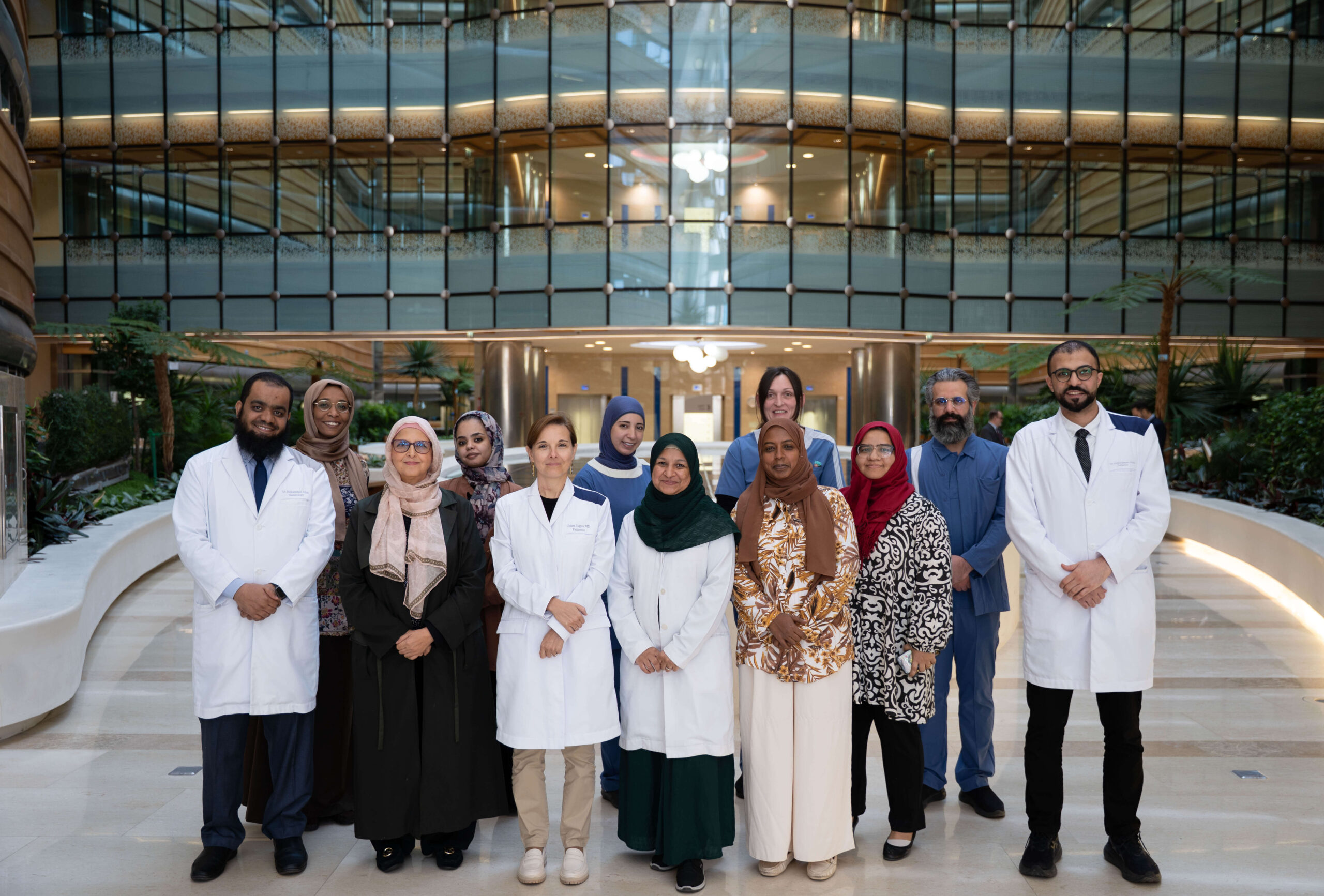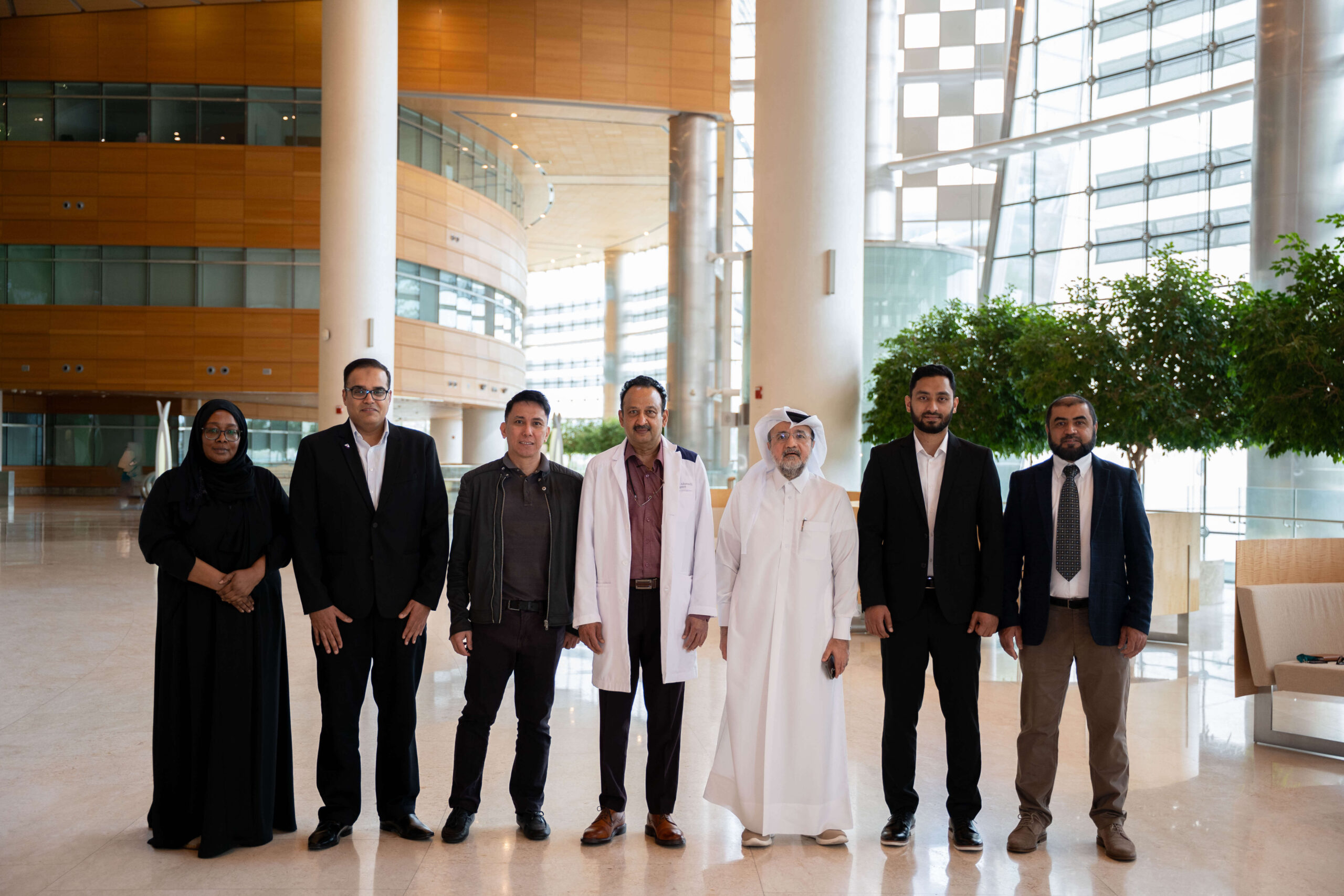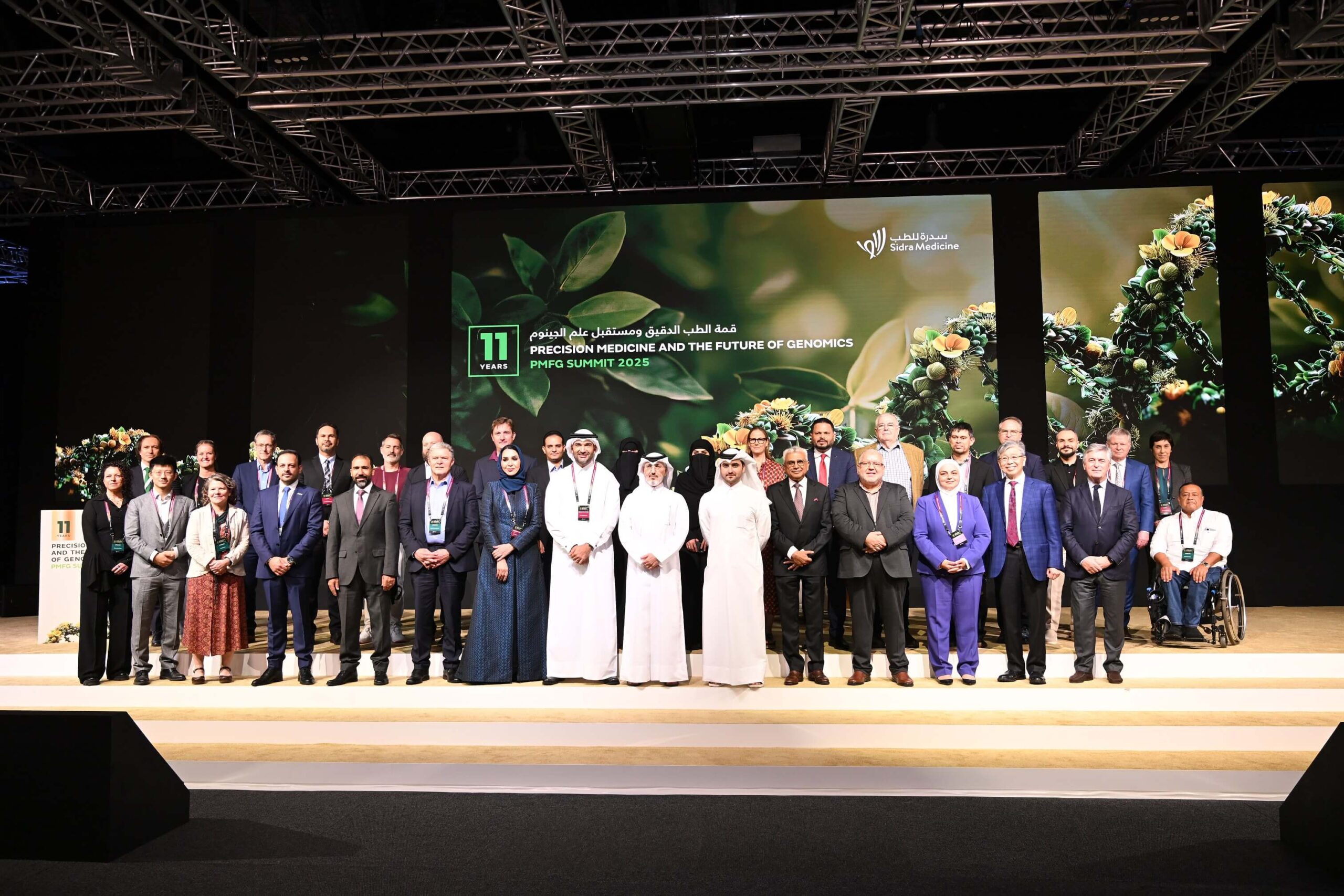Sidra Medicine Pioneers New Pediatric Treatment Protocol for Infant with Congenital Hyperinsulinism

28 January 2024, Doha, Qatar – In a world first, Sidra Medicine, a member of Qatar Foundation, has pioneered a new treatment protocol for a young infant with congenital hyperinsulinism. The findings have been published in the prestigious New England Journal of Medicine.
The treatment protocol was implemented by a team of endocrinologists, led by Prof. Khalid Hussain, Division Chief of Endocrinology at Sidra Medicine.
“In early 2023, we received a three-month old infant from Kuwait, whose condition was deteriorating because of congenital hyperinsulinism as she was experiencing severe hypoglycemia (low blood sugar). While in some mild cases, the condition can be managed with medication, for most children the hypoglycemia cannot be controlled with conventional medications. In such cases, surgery to remove either part or all of their pancreas (pancreatectomy) remains the only option. This is a major procedure and the children then have to live with lifelong diabetes mellitus and pancreatic exocrine insufficiency,” said Prof. Hussain.
To manage her low blood sugar, the patient was first put on conventional medical therapies and medications as well as a combination of intravenous dextrose therapy, continuous gastrostomy-tube feeding to maintain acceptable blood glucose levels.
Since the infant wasn’t responding to the conventional medicines, she was at increased risk of having to undergo a pancreatectomy. The Sidra Medicine team were keen to try other methods and decided to trial a new treatment protocol using Alpelisib.
The protocol to administer Alpelisib in an infant with congenital hyperinsulinism, is the first of its kind. It was trialed, following previous case reports where adult patients with breast cancer, being treated with the same drug, were shown to have experienced high blood glucose profile.
Alpelisib, is a protein-targeted medication that is used for treating breast cancer and overgrowth disorders in children. The medication regulates cell growth, proliferation and development and insulin signaling. One of its common adverse effects is increased glycogenolysis and gluconeogenesis, resulting in patients taking the drug experiencing hyperglycemia, i.e. high-levels of blood sugar.
“We wanted to avoid performing a pancreatectomy that would drastically impact the young girl’s future growth and lifestyle. The strategy we applied, was to take an existing medication like Alpelisib, that is used to treat breast cancer and overgrowth disorders, and repurposing its adverse effects of hyperglycemia – to address hypoglycemia i.e. low blood sugar levels. We also needed to make sure there were no other risks involved in taking this medication, that would be detrimental to the child’s health and development,” continued Prof. Hussain.
The young patient was put on the new treatment protocol and within six weeks, started to show a vast improvement in her blood sugar levels. She also continued maintaining a healthy weight and length without impacting her growth. She was discharged with minimal low blood sugar levels with the management of her condition requiring three-hourly oral feeds and to two daily doses of the medication.
Dr. Iyabo Tinubu-Karch, CEO of Sidra Medicine said: ““This is the first time in the world, a medication has been re-purposed for treating severe low blood sugar levels in an infant. I am very proud to see the clinical research and treatment innovation underway at our hospital, that aid in the delivery of precision health programs for our patients. We are grateful to the family of the young girl for trusting our team with the application of this new medication. We also hope such trials and treatment programs, will be an inspiration to other healthcare centers as we continue to share and exchange knowledge and medical know-how that can have a life changing impact.”
The young girl is now back in Kuwait and her blood sugar levels currently remain stable. She continues with the daily oral intake of Alpelisib with the Sidra Medicine team regularly following up to monitor her progress. The team have also noted that to date, she has not experienced any side-effects.
Prof Hussain concluded: “The trial is very promising as our observations suggest that Alpelisib may be used as an adjuvant therapy for patients with congenital hyperinsulinism who are otherwise medically unresponsive to other methods. It is also an important step to consider before such patients are recommended to undergo a partial or full pancreatectomy. We will now be trialing this method in other pediatric patients with the same condition, who do not respond to conventional medical therapies.
We call upon the wider medical community to conduct further clinical trials as the more research done in this field can help find better, safer and faster treatment methods for patients with congenital hyperinsulinism. This will radically change the way these patients are managed and could benefit thousands of children around the world!”









